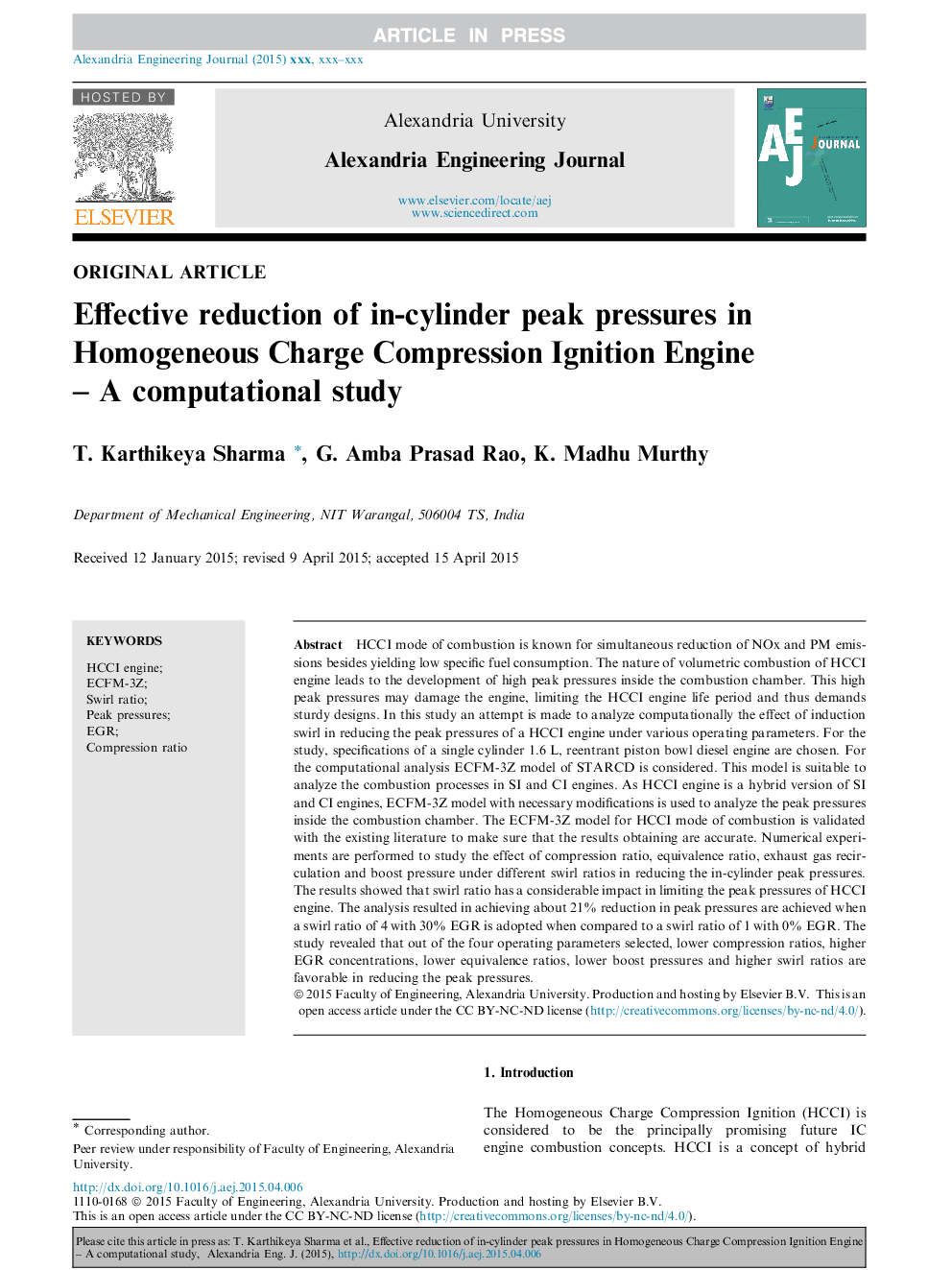| Article ID | Journal | Published Year | Pages | File Type |
|---|---|---|---|---|
| 816291 | Alexandria Engineering Journal | 2015 | 10 Pages |
Abstract
HCCI mode of combustion is known for simultaneous reduction of NOx and PM emissions besides yielding low specific fuel consumption. The nature of volumetric combustion of HCCI engine leads to the development of high peak pressures inside the combustion chamber. This high peak pressures may damage the engine, limiting the HCCI engine life period and thus demands sturdy designs. In this study an attempt is made to analyze computationally the effect of induction swirl in reducing the peak pressures of a HCCI engine under various operating parameters. For the study, specifications of a single cylinder 1.6Â L, reentrant piston bowl diesel engine are chosen. For the computational analysis ECFM-3Z model of STARCD is considered. This model is suitable to analyze the combustion processes in SI and CI engines. As HCCI engine is a hybrid version of SI and CI engines, ECFM-3Z model with necessary modifications is used to analyze the peak pressures inside the combustion chamber. The ECFM-3Z model for HCCI mode of combustion is validated with the existing literature to make sure that the results obtaining are accurate. Numerical experiments are performed to study the effect of compression ratio, equivalence ratio, exhaust gas recirculation and boost pressure under different swirl ratios in reducing the in-cylinder peak pressures. The results showed that swirl ratio has a considerable impact in limiting the peak pressures of HCCI engine. The analysis resulted in achieving about 21% reduction in peak pressures are achieved when a swirl ratio of 4 with 30% EGR is adopted when compared to a swirl ratio of 1 with 0% EGR. The study revealed that out of the four operating parameters selected, lower compression ratios, higher EGR concentrations, lower equivalence ratios, lower boost pressures and higher swirl ratios are favorable in reducing the peak pressures.
Related Topics
Physical Sciences and Engineering
Engineering
Engineering (General)
Authors
T. Karthikeya Sharma, G. Amba Prasad Rao, K. Madhu Murthy,
